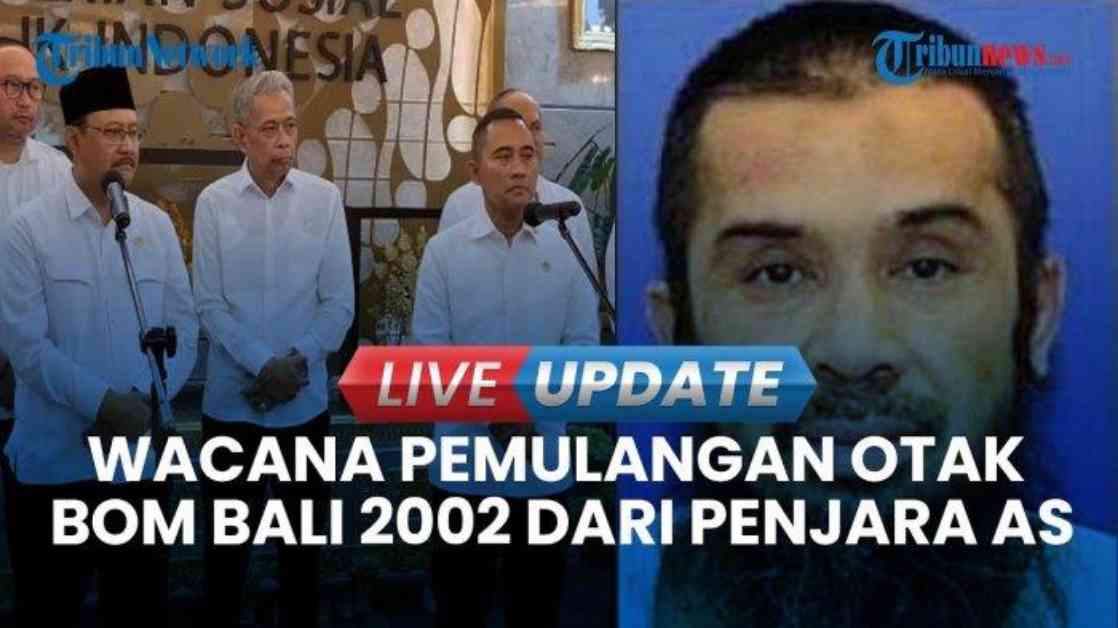Rehabilitation of Hambali: Ministry of Social Affairs Ready to Provide Assistance Post-Repatriation
The Indonesian government is considering repatriating former member of the terrorist group Jemaah Islamiyah (JI), Hambali, also known as Encep Nurjaman or Riduan Isamuddin, from the military prison in Guantanamo Bay, Cuba, run by the United States.
Minister of Social Affairs Saifullah Yusuf, also known as Gus Ipul, has stated that they are prepared to provide rehabilitation if Hambali is returned to Indonesia.
The process of deradicalization has traditionally fallen under the jurisdiction of the National Counterterrorism Agency (BNPT). However, the Ministry of Social Affairs is responsible for social rehabilitation.
Gus Ipul emphasized that during the social rehabilitation process, they will be accompanied by Densus 88 and BNPT to monitor and evaluate those who have been part of the social rehabilitation program for former terrorism convicts.
Rehabilitation efforts for former terrorism prisoners have been ongoing. However, there are specific procedures that must be followed in the social rehabilitation process for these individuals.
Head of BNPT, Police Commissioner General Eddy Hartono, mentioned that they have conducted numerous deradicalization programs for former convicts returning from abroad. They are committed to determining the best course of action for Indonesian citizens who have been victims of radical terrorist ideologies.
It was previously reported that the government was exploring options to repatriate Hambali from the military prison in Guantanamo Bay.
## Challenges in Rehabilitation Process
The rehabilitation process for former terrorism convicts involves various stages and procedures that must be strictly adhered to. This ensures that individuals are properly reintegrated into society and monitored effectively to prevent any recidivism.
## Governmental Support for Repatriated Citizens
The Indonesian government’s willingness to provide rehabilitation assistance to individuals like Hambali demonstrates a commitment to addressing the root causes of extremism and promoting social reintegration for former convicts.
## International Cooperation in Counterterrorism Efforts
The collaboration between different government agencies, such as the Ministry of Social Affairs, BNPT, and law enforcement units like Densus 88, highlights the importance of a coordinated approach in combating terrorism and radicalization.
In conclusion, the repatriation and rehabilitation of individuals like Hambali signify a step towards preventing future radicalization and promoting peace and security within Indonesia. The government’s proactive stance in addressing the challenges of social reintegration for former terrorism convicts is crucial in fostering a safer and more inclusive society.






















